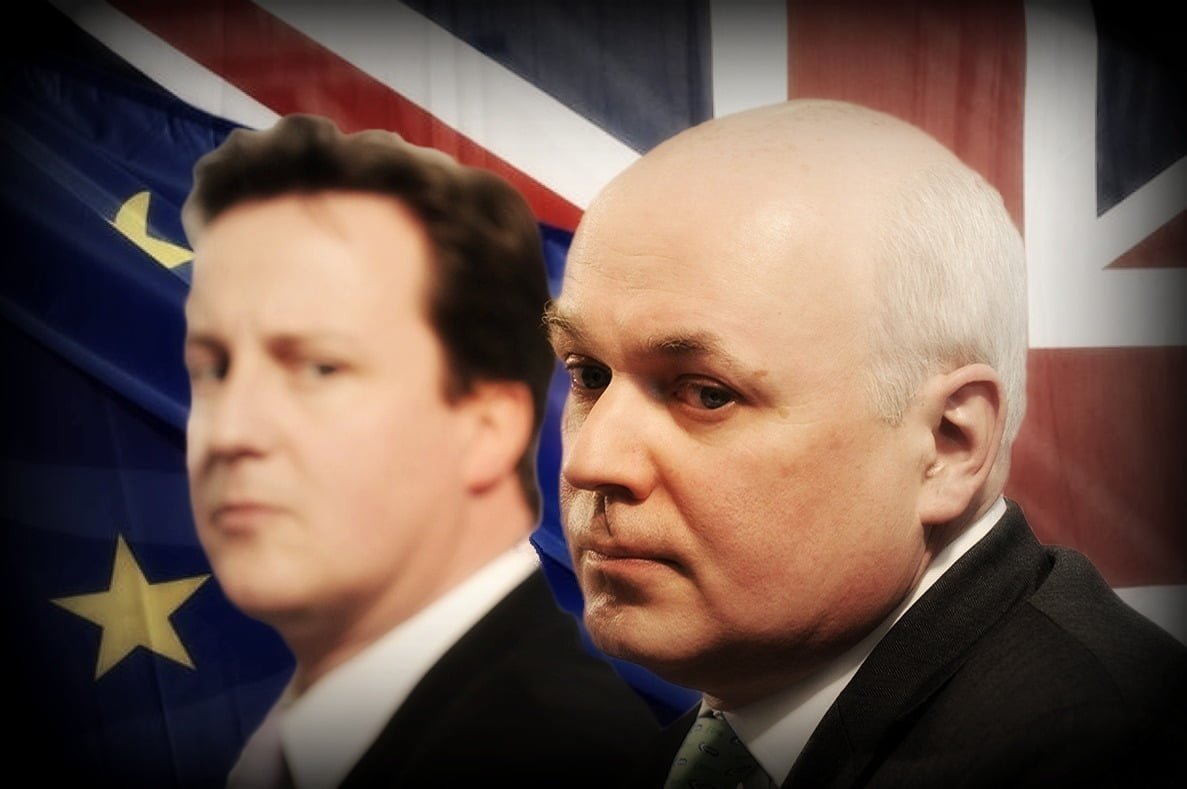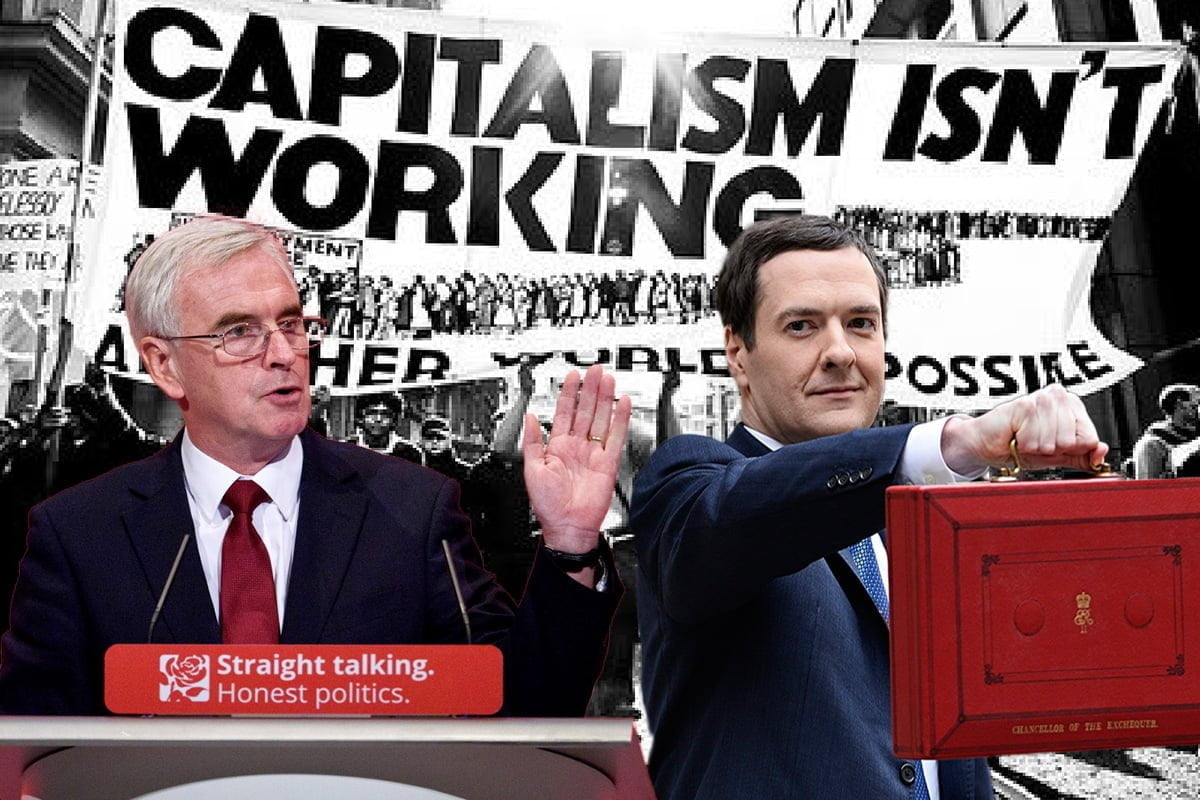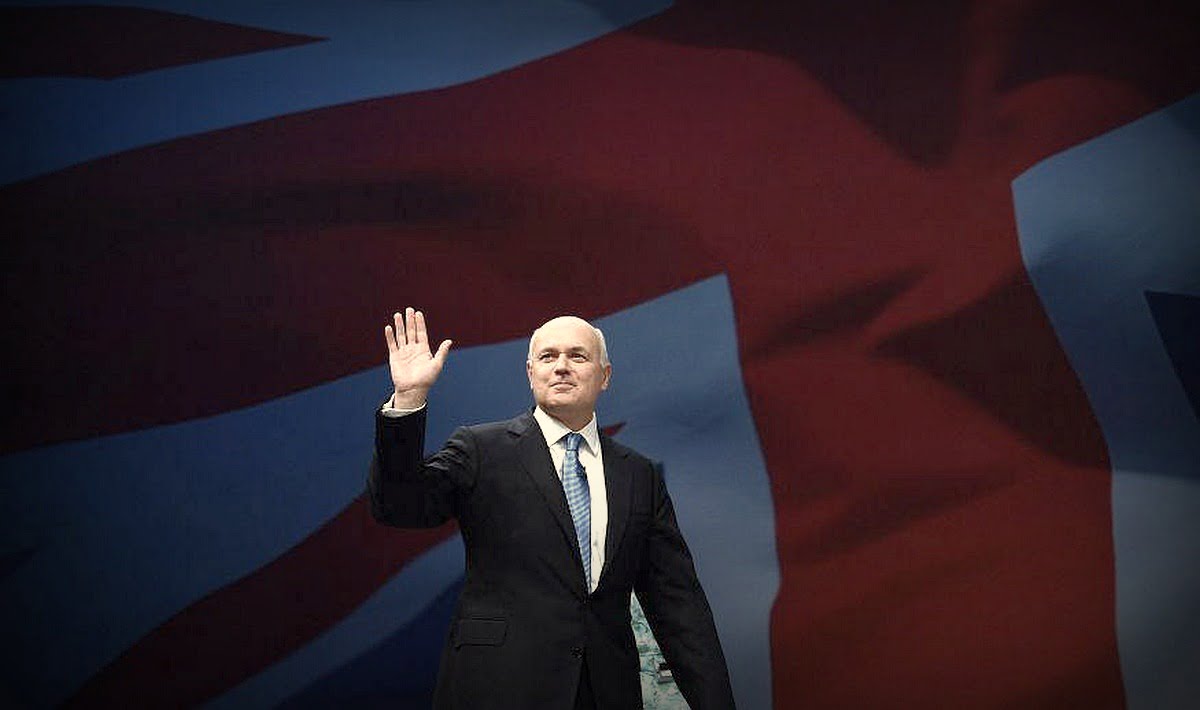Some have suggested that the resignation of Ian Duncan Smith from his position as Tory Secretary for Work and Pensions is proof of a “moral stand” being taken. But the list of past cuts overseen by IDS suggests that his actions are nothing short of political opportunism.
Former Conservative Leader and key figure in Cameron’s government, Iain Duncan Smith, also known as IDS, resigned from his role as Secretary of State for Work and Pensions on Friday last week. Some have suggested that his resignation is proof of a “moral stand” being taken – but the list of past cuts overseen by IDS suggests that his actions are nothing short of political opportunism.
Over the course of his six years of welfare cuts, 500,000 more British children were classified as living in absolute poverty and £51 billion worth of welfare cuts were implemented. One of the most ruthless effects of his time in office were the reported 2,380 people who died between 2011-2014 after being declared “fit for work” under the updated definition that IDS instated. With a new world slump on the horizon and years more of austerity to come in Britain, another round of the same destructive level of welfare cuts will be required in the coming future.
Duncan Smith’s official statement for his resignation said that he could not support cutting disability benefits, PIPs, at the same time as tax cuts for the rich, with the higher income threshold for tax being raised from £43,000 to £45,000. Both these measures were announced by George Osborne in his recent 2016 Budget statement.
A report conducted by the Institute for Fiscal Studies determined that the cuts to disability benefits would hit 370,000 people with an average loss of £3,500 a year. It would stop £1.3 billion a year from being invested into Personal Independence Payments (PIPs).
Graeme Ellis, a long-time Conservative disability campaigner quit the party shortly after the cut proposals were announced, sabotaging the Conservative Disability Group’s website in response to these measures, indicating that they are a step too far even for the Tories’ voting base. The Mirror also reported that disability-focused charity, Richmond AID, forced Conservative London mayoral election candidate Zac Goldsmith to resign as a patron of the group after he came out in favour of the cuts.
Prompted by Tory split
However, given the level of cuts IDS has stomached – and indeed led the charge on – over the past six years of Tory rule, it is clear that Duncan Smith’s resignation had nothing to do with ideals and morals over cutting disability benefits, and everything to do with the chaotic internal politics of the Conservative Party. As can be seen, he was perfectly capable of instigating similarly callous welfare cuts during his tenure at the top of the Department for Work and Pensions.
In reality Duncan Smith’s move is political opportunism in a disintegrating Tory government. Ever since Cameron made the mistake of announcing he would not stand in another election as Conservative leader, the key establishment figures of the Conservative Party –Boris Johnson, Theresa May, George Osborne, Michael Gove, etc. – have taken the decision to divert the next four years of policy making to meet their own interests in hindering the competition.
This has been provoked further with a huge divide in the Conservative Party over the EU referendum. Gove and Johnson have openly come out in support of leaving Europe, and Osborne and May are in support of staying in Europe.
An issue which UKIP painted as such an obvious divide between economic benefits and economic disasters has in actual fact divided the capitalist class and their political representatives immensely.
This has led to Osborne recently trying to create a reputation of himself as a softer politician at the same time as juggling his task of getting rid of Britain’s deficit. The Guardian reported that members of the Department of Work and Pensions had complained that the Treasury had painted the disability benefit cuts as the policy of the DWP to avoid the public backlash being directed at Osborne. They claimed that the policy was actually dreamt up by the Treasury and forced through the DWP at speed by order.
With the threat of a backbench rebellion over the bill and even a U-turn on the policy being considered by the party, Iain Duncan Smith played his cards well by resigning, thus deflecting Osborne’s attempts to make him take the blame for this horrendous policy, and in turn saving his reputation in a seemingly principled move. In return, Osborne was seen to lose credibility as a candidate for the Conservative leadership (if indeed he had any credibility left). This lines Duncan Smith, a vocal supporter of the Brexit campaign, up for a nice cabinet position in what he hopes will be a Boris Johnson led government in 2020.
Iain Duncan Smith’s resignation is not an isolated one-off event, but yet another reflection of a government and a party that is the process of imploding. Earlier this year, after the Prime Minister devoted a large amount of time to running around the European government to get an EU referendum deal to preserve his reputation and promise to the electorate, Michael Gove declared his deal “not legally binding” on Cameron’s return. This effectively spelt open civil war on the most decisive issue of the party. The public have also noticed the division within the Conservatives. A YouGov poll showed the opinion that the Conservative Party was divided had increased from 45% in November 2011 to 69% in March 2016. By contrast, the Labour Party was believed to be divided by 65% as of March 2016 – which it clearly is, with a Blairite cabal continuing in their attempts to undermine Corbyn, the democratically elected leader.

Concrete policy turns to suggestion
Only a few days before the resignation, Duncan Smith had been running around whipping up support for the measures. Conservative MP Nadine Dorries took to Twitter to complain that just days before his resignation, Duncan Smith had approached her and “personally and angrily begged” her to vote for the disability ESA cuts when she had already decided not to. Apparently he explained to her that he was disappointed in her rebellion against his bill that he’d worked hard on.
Isn’t it convenient that IDS’ morals about welfare cuts only came into effect at a point where they would further Iain Duncan Smith’s career and tarnish Osborne’s? And isn’t it strange that such morals don’t seem to kick in after about six years carrying out brutal welfare cuts – just after the realisation that a rebellion against the bill would spell disaster for his career?
With Osborne not wishing to face the blame for the disability cuts policy, a U-turn on the policy has been declared by the Treasury. What is one day a concrete policy on the area of politics the Conservatives boast to be best at – cutting public expenditure – in three days’ time becomes a mere suggestion getting thrown under the carpet. Labour’s Shadow Work and Pensions Secretary noted that it is “ludicrous for the Tories to pretend that this was anything other than a major part of Wednesday’s budget”.The Conservative party is clearly, in no sense of the word, fit to govern.
David Cameron lashed back at Duncan Smith and declared his surprise over the resignation. Cameron claimed that they had all come together and made an agreement on the bill collectively. Duncan Smith’s replacement, Stephen Crabb, has been marketed in the BBC News as being from a working class family, brought up on welfare, and yet what the BBC forgets to mention is his voting record. He supported the PIP cuts policy; he has supported the tax credits cut; and he voted against the 2007 Equality Act of Sexual Regulation Orientation, which made discrimination based on sexual orientation illegal. On top of all this he is pro-EU, which fulfils his duty as a loyal political replacement for Cameron and Osborne. Iain Duncan Smith’s resignation will clearly do nothing towards making the Conservative Party seem softer, as some Tories had previously attempted to claim.
What this means for Labour
The Chief Political Correspondent in the Independent writes that Iain Duncan Smith’s resignation shows that “the Labour Party might as well not exist”! He backs this up by saying that, as the Conservative Party have shown they have morals when tackling the budget, and that because they are having a constructive debate on Europe, the Conservative Party is better than Labour at the two most important issues of the day.
The truth is quite the opposite. As discussed above, Duncan Smith’s resignation was nothing to do with morals, and his replacement has the same lack of credibility when it comes to morals as he did. When it comes to the EU, the Conservative split shows the corrupting influence of big business interests and political careerism that prop up the party.
Labour leader, Jeremy Corbyn, has come out in support of Duncan Smith’s new-found morality and resignation. The situation benefits Corbyn in two respects. After making just one speech in parliament, Corbyn’s hard-hitting reflection of the public’s anti-austerity mood has dealt a blow to his critics within his own party, silencing a small but well-funded group of rebellious Blairite MPs who have been refusing to support the Labour leader’s position on the economy.
Secondly, at the same time, it has accelerated the problems in the party opposite, shifting the focus away from Labour’s own internal divisions and instead highlighting the internal party divisions that Cameron faces in his own party.
Corbyn and Labour need to continue on this offensive against the Tories, exposing their weakness by putting forward a bold socialist alternative. John McDonnell’s “fiscal credibility rule” – with Keynesian promises to balance the budget and cut the debt whilst investing for the future – is no solution, but represents a shift away from the clear anti-austerity position that Corbyn was overwhelmingly elected on.
The Shadow Chancellor’s rule attempts to play to a position that doesn’t exist. As shown in polling, Corbyn’s anti-austerity stance is helping Labour to gain popularity. YouGov conducted a poll on 17th March, which showed that Labour is at 34%, whilst the Tories are at 33% – a remarkable change from the General Election last May. An ICM poll conducted earlier that week showed both Labour and the Conservatives at 36%. Meanwhile, 70 % of the British public were found to think that cuts to PIP disability benefits were “the wrong priority” according to YouGov. This shows that there is a growing demand for anti-austerity politics in this country.
Corbyn and McDonnell should be pointing out the contradictions in the Tories’ arguments and going on the offensive against the capitalist system that Cameron and co. defend. How can disability cuts be a reality when corporations like Google can get away with paying a 2.8 % tax rate?
As the party of the working class, Labour needs to capitalise on the radicalisation amongst workers and youth and fight the Tories with socialist policies, instead of inventing meaningless rules to try and manage capitalism. What is needed is a party that will challenge every welfare cut to the poor and every tax break for the rich administered. We must not let the capitalist class get away with making us pay for the debts that they – the bosses and the bankers – racked up.







